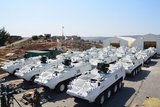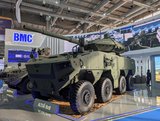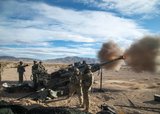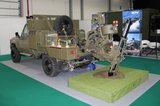BAE to sell South African business to Denel
BAE Systems’ Land Systems South Africa (LSSA) business is to be sold to Denel for 855 million Rand ($80.2 million) in the fourth quarter of 2014, it has been announced.
In a statement released on on 11 August, BAE Systems’ head office stated that an agreement for the proposed sale of its holding in LSSA had been reached with South Africa’s state-owned defence manufacturer, Denel.
This is good news for Denel, which now has an armoured vehicles manufacturing plant to take over, which is one of LSSA three main business units including Olifant Manufacturing Company (OMC); BAE Gear Ration; and
Already have an account? Log in
Want to keep reading this article?
More from Land Warfare
-
![The US military is expanding its efforts to modernise mortar technology]()
The US military is expanding its efforts to modernise mortar technology
A growing push towards increasing mobility and lethality across forces can be seen in recent contracts and modernisation efforts, with advancing mortar technology playing an integral role in modern warfare.
-
![US Army plans Q2 prototype proposal request for its Mobile Tactical Cannon programme]()
US Army plans Q2 prototype proposal request for its Mobile Tactical Cannon programme
The US Army is seeking a mature 155mm, wheeled, self-propelled capability to replace the towed M777 howitzer in the Stryker, Mobile and Infantry Brigade Combat Teams as it targets a potential 498-unit acquisition goal.
-
![British Army’s Project Stokes 120mm mortar bids due in March 2026]()
British Army’s Project Stokes 120mm mortar bids due in March 2026
Project Stokes could see a new 120mm mortar capability enter British service, with domestic production and international partnerships central to competing bids.
-
![MKJ Warrior Series — The Nett Warrior Qualified Connector for Today’s Soldier Systems]()
MKJ Warrior Series — The Nett Warrior Qualified Connector for Today’s Soldier Systems
ITT Cannon’s MKJ Warrior connectors are designed for the harshest environments, delivering mission critical comms, navigation and USB data/power.
























